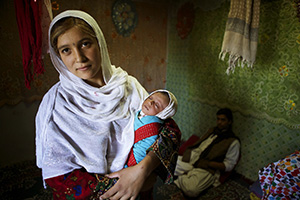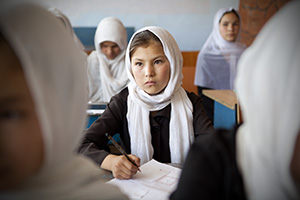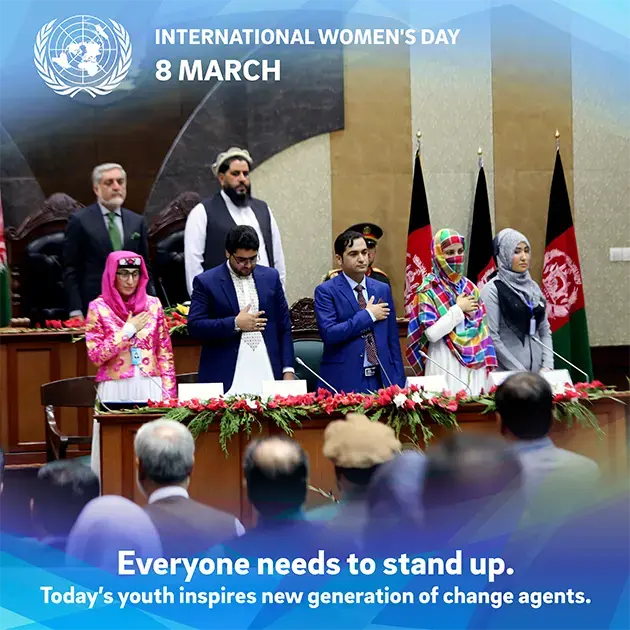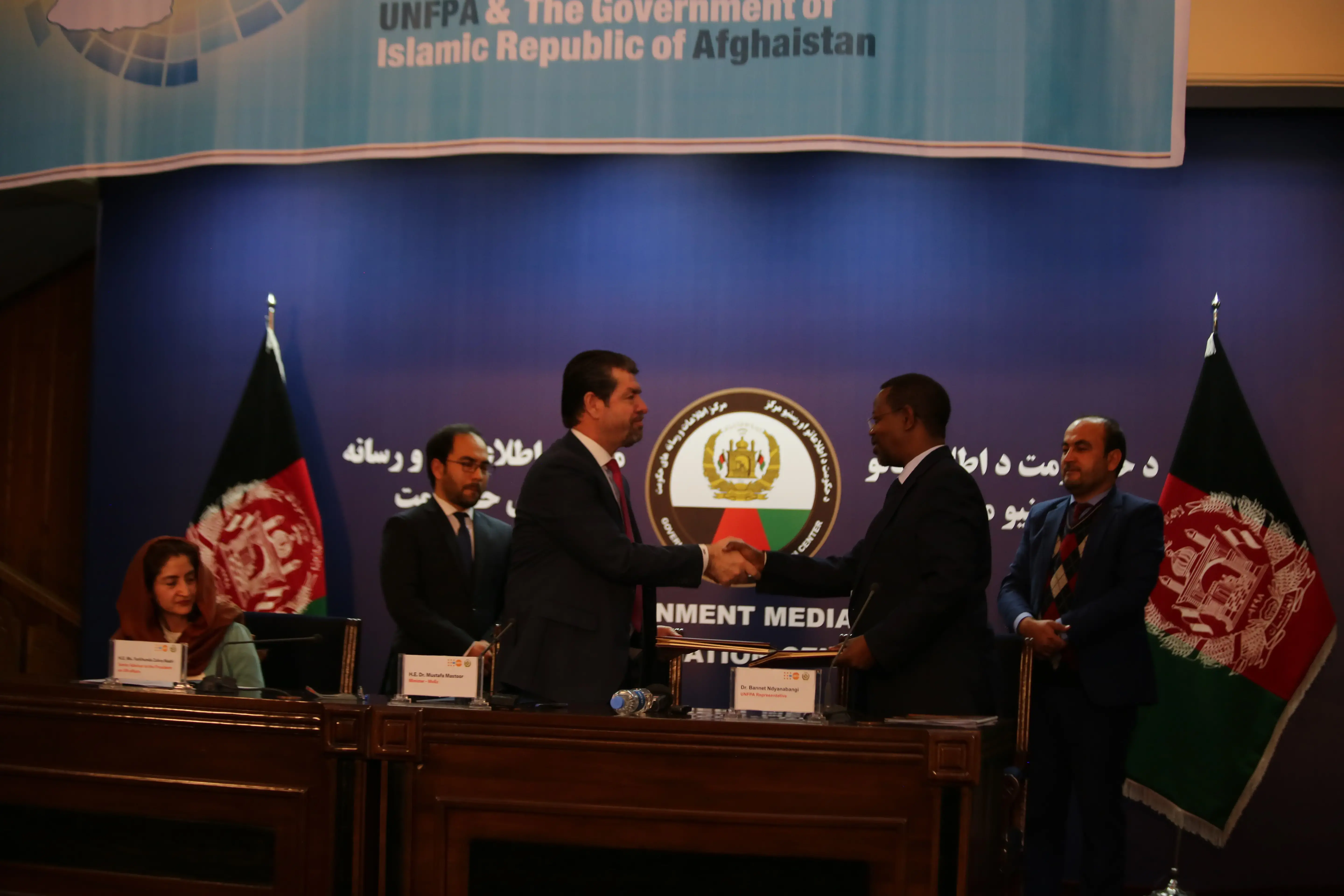OverviewAbout 63 percent of Afghans are under 25 years of age, reflecting a steep ‘pyramid' age structure whereby a large cohort of young people is slowly emerging. With education and jobs, good healthcare and empowerment, young people may contribute to a demographic dividend: a large working age population with few dependents, collectively bringing prosperity to their society. Yet young people in Afghanistan face significant challenges related to health, education, employment and gender inequality. Adolescent pregnancy, which is linked to child marriage, contributes to high rates of maternal mortality and is a major obstacle for girls when accessing educational and employment, while substance abuse is a growing concern amongst young men. Youth literacy is low (62 percent for young men, 32 percent for young women) and ensuring that decent jobs are available remains one of Afghanistan's biggest challenges. A strong gender bias is prevalent, and girls and young women are systematically discriminated against and are more likely to be victims of violence and abuse than their male counterparts. Realizing Afghanistan's demographic dividend will depend on realizing the potential of these girls and women and, ultimately, overcoming structural gender inequality. UNFPA achievements:- UNFPA supported the Deputy Ministry of Youth Affairs to develop the first-ever Afghanistan National Youth Policy in consultation with over 500 young people on the issues which affect their lives. The Policy was approved by the Council of Ministers in August 2014. - UNFPA took the lead in establishing and co-chairing a country-level UN Interagency Network on Youth to increase effectiveness and accountability in programming for adolescents and youth. - UNFPA prepared the country's first Afghanistan State of Youth Report 2014 to help build the evidence base for youth related programming and advocacy. - More than 2,000 young people were trained as peer educators to lead open discussions on family life education to promote healthy behaviours. - In 2012, a free Youth Health Line was established with UNFPA support in Kabul. This now receives 2,700 calls a month and provides young people with information and counselling. - In 2014, UNFPA collaborated with the Ministry of Education to conduct the first review report on the state of family life education in the school curriculum. - UNFPA assessed the friendliness of youth services in 24 health facilities in five provinces and made recommendations on how to improve them. - A unique Youth Friendly Services Centre in Kabulprovides youth friendly services to more than 200 young women and men per month.
|
Read more:Supporting the rights of youth Mainstreaming youth friendly services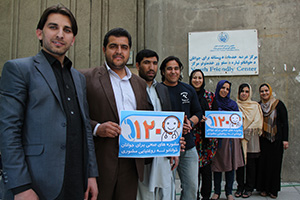
Increasing access to family life education Strengthening youth participation and leadership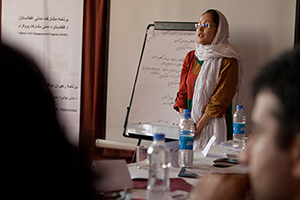
|


